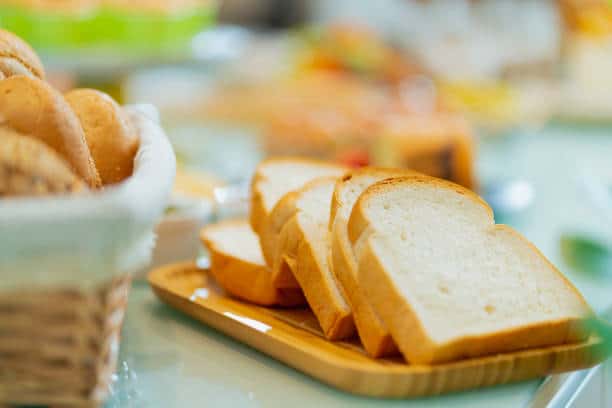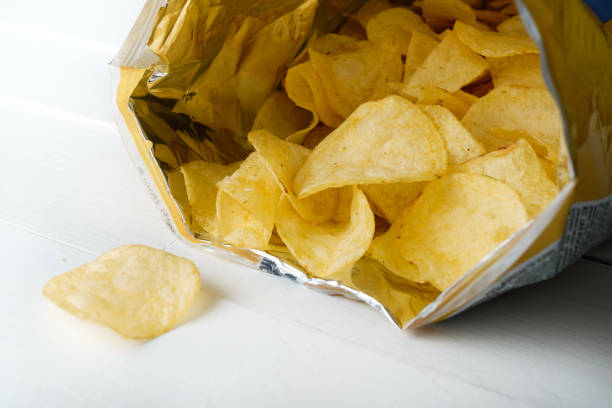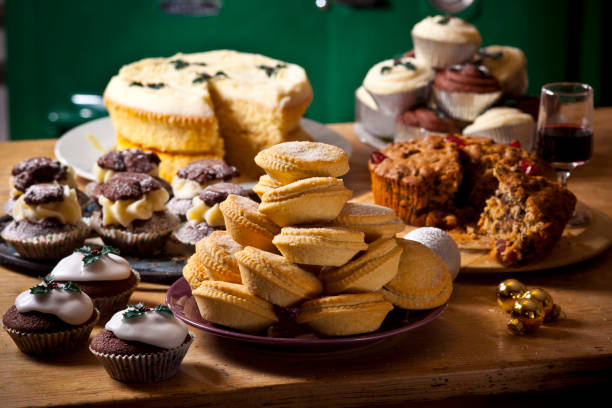An ongoing problem across the world, obesity contributes to numerous health conditions and issues. While the increase in obesity may be attributed to various factors, one of the biggest is a lack of satiety.
But did you know that people don’t just overeat because they crave more food? Many modern foods actually make us hungrier than before we ingested them.
And there’s a reason for this. A very real biochemical and nutritional reason, steeped in science.
This issue is critical, so let’s get right to it. If we can understand the reasons why some foods lead to overeating, we can better understand the obesity epidemic today and try to reverse it.

1. Soda
You probably already know that soda is a ‘sugar bomb’ filled with unnatural ingredients. But what about its effects on satiety? Turns out that all that sugar may also be making you hungrier and thirstier.
When drinking soda, your body encounters a rapid sugar spike. When this happens, your insulin also surges to try to regulate your increasing sugar levels. Then comes the crash. Once your sugar levels deplete, your body sends out hunger signals.
It’s basically like a rollercoaster, filled with spikes and crashes, and as you go, you only crave more sugar or more high-calorie foods. Not to mention, soda has virtually zero nutritional value, so your body will start to want actual food of value.
Over time, this can lead to a cycle of overeating and poor food choices, many loaded with sugar.

2. White Bread
While white bread may have a desirable texture and taste, it actually often leads to increased hunger. This happens because white bread is made from refined grains. Lacking fiber, white bread doesn’t deliver that feeling of fullness that other foods do. The refined grains also spike sugar in your blood, which intensifies cravings for more carbs.
Whole grain bread is a good alternative. With whole grain bread, you don’t get the high glycemic index of white bread. Because of this, your sugar levels won’t spike, and you won’t find yourself craving other unhealthy foods.

3. Low-Fat Yogurt
When you hear “low fat,” you probably think it must be healthy, right?
Well, it turns out that even low-fat yogurt may lead to overeating. Like with many foods on this list, the culprit is sugar. Many of these low-fat options are rich in sugar, and given the lack of fat, the yogurt isn’t that filling.
As a result, your digestion is faster, your insulin levels spike, and you’re left looking for something else after you’re done eating it.
Ironically, the lack of fat may lead to more fat storage over time because of the added sugars. Healthy fats also regulate hormones such as leptin, which signals fullness. So if you’re lacking in healthy fats, your hormones may trigger you to want more and more of other foods. Low-fat yogurt can also upset the microbiome, leading to harmful bacteria.
There is also a psychological component, as many people may consume greater quantities of ‘low-fat’ products, not realizing the portions are larger.
RELATED: 4 Smart Ways To Handle Your Hunger

4. White Pasta
Like white bread, white pasta is a largely refined product made from refined flour. Due to this refinement, many of the food’s nutrients, like fiber, have been removed or minimized. This is what leads to spikes in sugar, because your body quickly breaks down the carbohydrates. If the pasta was not refined, you would digest it more slowly, avoiding those unhealthy sugar and insulin spikes.
Then you have the fiber issue. Without ample fiber, you are not filled like you would be with whole-grain or legume-derived pasta. This may lead to serving after serving, as you simply don’t feel full. If you continue to eat meals with refined foods, you’ll be prone to overeating and sugar cravings.
With time, it’s a recipe for weight gain and reduced nutrition.

5. Alcohol
Now, we all know that alcohol in large quantities can be a problem. Not only can it lead to dependence and health issues, but it may also increase your hunger. This happens because alcohol interferes with the hormones leptin and ghrelin, which help regulate fullness. By suppressing leptin, alcohol keeps you from feeling satiated. Meanwhile, alcohol also increases ghrelin levels, thereby increasing your appetite.
You must also consider the most obvious effect of alcohol, which is the lowering of inhibitions. When your inhibitions are lowered, you may be more likely to engage in poor decision-making. Impulsive eating, unhealthy snacking, and overeating are all possible consequences of this impact!

6. Fruit Juice
Fruit juice sounds healthy, but it can actually make you hungrier in the long run. Different from whole fruit, fruit juice often lacks the fiber you need to slow digestion and feel full. Many fruit juices also contain high sugar contents, which, as we’ve discussed, can disrupt your hormone signaling and intensify appetite.
Some fruit juices even have as much sugar as soda!
So, if you’re trying to enjoy the health benefits of fruit, it’s advised that you consume whole fruit. You’ll get the fiber you need for satiety as well as the nutrients you need for hunger regulation.

7. Potato Chips
Potato chips are actually one of the worst foods when it comes to overeating. Loaded with unhealthy fats, refined carbs, and plenty of salt, potato chips are the perfect food to spike your hunger. Many people also become dehydrated from the salt content, seeking more snacks or food by mistake.
The combination of salt and fat in potato chips is also linked to food addiction and bingeing, which can cause all kinds of problems. Many processed foods rely on the interplay of salt and fat, as it’s well known that these two components trigger the pleasure centers of the brain.
No wonder some of the unhealthiest snacks are so hard to put down!

8. Pastries
Croissants, muffins, cakes – you name it, these pastries are loaded with sugars and empty calories. Like many of the foods in this article, pastries spike your blood sugar and contribute to cravings for similar foods.
They’re also quite low in fiber and protein, so you’re not going to feel adequately full when eating them. And thanks to the quick digestion of sugar and refined flour, you’ll be reaching for pastry after pastry throughout the day.
So basically, it’s pretty simple.
Too much sugar, too much salt, and not enough fiber can be a disaster for anyone trying to lose weight or manage those pounds. Whether it’s alcohol, soda, white bread, fruit juice, or any of the other food items discussed in this article, the key is moderation.
Opt for whole, unprocessed foods whenever possible. And remember, when you see ‘refined’ on a food item, it’s not what you think. While ‘refined’ may sound like a nice term, what it really means in many cases is lacking in nutritional value.
So be mindful, cut back on the unhealthy snacks and foods, and choose options that fill you up first and foremost.









